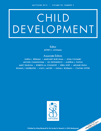
DEVELOPMENTAL PSYCHOBIOLOGY
Scope & Guideline
Charting New Territories in Developmental Research
Introduction
Aims and Scopes
- Neurodevelopmental Processes:
The journal extensively covers studies investigating the neural mechanisms that underlie various developmental processes, including cognitive, emotional, and social development. - Impact of Early Life Experiences:
Research exploring how early life experiences, including maternal behaviors, stress, and environmental factors, affect developmental outcomes and neurobiological functions. - Biopsychosocial Models of Development:
A significant emphasis is placed on integrative models that consider biological, psychological, and social factors as interconnected influences on development. - Animal Models and Human Studies:
The journal publishes both animal model studies and human research, providing a comprehensive view of developmental psychobiology across species. - Health Disparities and Socioeconomic Factors:
There is a focus on how socioeconomic status and environmental contexts influence developmental trajectories, particularly in vulnerable populations.
Trending and Emerging
- Epigenetics and Development:
There is a growing body of research exploring how epigenetic mechanisms influence developmental processes, particularly in response to environmental stressors and maternal care. - Neurobiological Correlates of Parenting:
Recent studies increasingly focus on the neurobiological mechanisms underlying parenting behaviors and their implications for child development, highlighting the importance of caregiver-infant interactions. - Impact of Technology on Development:
Emerging research is examining the effects of technology use, including screen time and digital interactions, on developmental outcomes and psychological well-being in children. - Social and Emotional Learning (SEL):
There is a rising interest in the role of social and emotional skills in development, particularly how these skills can be fostered through interventions in early childhood. - Stress and Resilience in Vulnerable Populations:
Research focused on understanding stress responses and resilience mechanisms in children from disadvantaged backgrounds is gaining traction, reflecting broader societal concerns.
Declining or Waning
- Traditional Behavioral Studies:
There has been a noticeable decrease in studies solely focused on traditional behavioral assessments without incorporating neurobiological measures, reflecting a shift towards more integrated approaches. - Single-Factor Models of Development:
Research that emphasizes single-factor explanations (e.g., genetics alone) for developmental outcomes has become less prevalent, with a growing preference for multifactorial analyses. - Focus on Adult Development:
While there is still interest in adult development, there has been a relative decline in publications specifically addressing adult neuropsychological processes compared to developmental stages in childhood and adolescence.
Similar Journals

INTERNATIONAL JOURNAL OF BEHAVIORAL DEVELOPMENT
Innovating research in developmental and educational psychology.INTERNATIONAL JOURNAL OF BEHAVIORAL DEVELOPMENT, published by SAGE PUBLICATIONS LTD, is a premier academic journal dedicated to advancing the fields of developmental and educational psychology, developmental neuroscience, and social psychology. With an impressive impact factor and a Q1 ranking across multiple categories for 2023, this journal ranks among the top 25% in various social science domains, including education and lifespan studies. Its commitment to publishing high-quality research makes it an essential resource for researchers, educators, and students focused on understanding behavioral development across the lifespan. The journal aims to disseminate innovative findings, fostering a deeper comprehension of the behavioral factors that shape human growth and interactions. Through its rigorous peer-review process and global editorial standards, it not only enhances the academic conversation but also influences policy and practice in related fields. For more information, readers can access additional content through subscription or institutional access options.

NEUROPSYCHOBIOLOGY
Fostering Knowledge: Uniting Neuroscience and Psychological ProcessesNEUROPSYCHOBIOLOGY, published by KARGER, is a leading academic journal that has been at the forefront of exploring the intricate relationships between neuroscience and psychological processes since its inception in 1975. With both an ISSN of 0302-282X and an E-ISSN of 1423-0224, the journal is renowned for its rigorous peer-reviewed articles and significant contributions to the fields of Biological Psychiatry, Neuropsychology, and Physiological Psychology. Its impact is reflected in its esteemed Scopus rankings, standing out in the 92nd and 81st percentiles in their respective categories. With a commitment to advancing understanding in mental health and neurological science, NEUROPSYCHOBIOLOGY is classified in the Q3 and Q1 quartiles, making it a vital resource for researchers, clinicians, and students alike. Based in Switzerland, the journal embraces a holistic approach to psychological research, bridging gaps between theoretical frameworks and practical applications, thus promoting impactful advancements in the understanding of the human mind.
Explore the latest findings and theories with NEUROPSYCHOBIOLOGY, where your work can contribute to the evolving landscape of neuropsychological studies.

Journal of Developmental Biology
Empowering the Future of Developmental ResearchJournal of Developmental Biology, published by MDPI, is an esteemed open access journal that has been contributing to the field since its inception in 2013. With a focus on developmental processes across various biological systems, this journal serves as a vital platform for disseminating cutting-edge research and fostering dialogue among experts in the fields of Cell Biology, Developmental Biology, and Molecular Biology. The journal currently holds a commendable Q2 ranking in both Developmental Biology and Molecular Biology, underscoring its significance in advancing knowledge within these domains. Operating out of Switzerland, and featuring an engaging array of articles, the journal prioritizes accessibility through its Open Access model, further expanding the reach of vital research findings. Whether you are a seasoned researcher or an enthusiastic student, the Journal of Developmental Biology provides an essential resource for the latest insights and developments in this rapidly evolving field.

MERRILL-PALMER QUARTERLY-JOURNAL OF DEVELOPMENTAL PSYCHOLOGY
Championing Research that Shapes Developmental FuturesMERRILL-PALMER QUARTERLY: JOURNAL OF DEVELOPMENTAL PSYCHOLOGY, published by Wayne State University Press, stands as a vital resource in the field of developmental psychology. Established in 1973, this peer-reviewed journal spans research focused on the psychological, social, and educational development of individuals throughout their lifespan. With a current impact factor reflected in its quartile rankings, including Q2 in Education and Q2 in Social Sciences for 2023, the journal serves as a notable platform for scholars aiming to disseminate findings that contribute to theoretical and practical advancements in these domains. Researchers and professionals benefit from the journal's commitment to rigorous scholarship, providing insights that bridge educational psychology and social sciences. Although not open access, its valuable contributions are crucial for both academic study and applied practices within developmental psychology.

DEVELOPMENTAL NEUROPSYCHOLOGY
Fostering Dialogue for Evolving Neuropsychological PracticesDEVELOPMENTAL NEUROPSYCHOLOGY (ISSN: 8756-5641; E-ISSN: 1532-6942) is a pivotal peer-reviewed journal published by ROUTLEDGE JOURNALS, TAYLOR & FRANCIS LTD in the United Kingdom. Since its inception in 1985, this esteemed journal has been dedicated to advancing the understanding of developmental processes that influence neuropsychological outcomes in children and adolescents. With a focus on the integration of psychological and neuropsychological perspectives, it serves as a vital resource for researchers, clinicians, and educators alike. The journal's current impact factor and its placement in the third quartile for both Developmental and Educational Psychology and Neuropsychology categories underscore its significance in the field, as it ranks in the 45th percentile in both Scopus ranks. While DEVELOPMENTAL NEUROPSYCHOLOGY does not offer open access, it presents crucial research findings and theoretical advancements that cater to professionals seeking to deepen their knowledge and application of developmental neuropsychology until 2024. By fostering dialogue among scholars and practitioners, this journal contributes meaningfully to the ongoing evolution of clinical practices and educational strategies targeting neurodevelopmental trajectories.

Journal of Developmental Origins of Health and Disease
Decoding the Origins of Health and DiseaseThe Journal of Developmental Origins of Health and Disease is a premier academic publication under the esteemed Cambridge University Press, dedicated to advancing the understanding of how developmental processes influence health outcomes across the lifespan. With an ISSN of 2040-1744 and an E-ISSN of 2040-1752, this journal has established itself as a critical resource in the field of medicine, currently positioned in the Q2 category of Medicine (miscellaneous). Having converged from 2010 to 2024, this journal reflects a significant commitment to exploring the interconnections between early development and subsequent health conditions. Ranked 147 out of 398 in its category according to Scopus, it retains a commendable 63rd percentile status, highlighting its contributions to this rapidly evolving field. Though it does not offer open access, the journal remains a vital platform for researchers, professionals, and students interested in uncovering the intricate links between developmental biology and public health challenges.

DEVELOPMENTAL DYNAMICS
Advancing the Frontiers of Developmental BiologyDEVELOPMENTAL DYNAMICS is a prominent journal in the field of Developmental Biology, published by WILEY. This esteemed journal, identifiable by its ISSN 1058-8388 and E-ISSN 1097-0177, provides a critical platform for the dissemination of innovative research covering cellular and developmental processes across diverse biological systems. With a 2023 impact factor placing it in the Q2 category of Developmental Biology and an impressive Scopus rank of #39/82, the journal plays a vital role in advancing knowledge and fostering collaboration among researchers, professionals, and students. Although it is not an open-access publication, DEVELOPMENTAL DYNAMICS remains a cornerstone in the academic community, particularly for those dedicated to understanding the complexities of biological development. The journal's convergence from 1992 to 2024 reflects its longstanding commitment to high-impact research that influences both theoretical and practical applications in the field.

CHILD DEVELOPMENT
Navigating the complexities of child growth and education.CHILD DEVELOPMENT, published by WILEY, stands as a premier journal in the fields of developmental and educational psychology, education, pediatrics, perinatology, child health, and social work. Established in 1945, it has consistently maintained a strong impact, underscored by its 2023 Q1 ranking in multiple relevant categories, as well as its esteemed positions within Scopus rankings, including a remarkable 14th place in Pediatrics. The journal serves as a vital resource for researchers and professionals, offering rigorous peer-reviewed articles that explore pivotal aspects of child development through a multidisciplinary lens. Although it does not currently offer open access options, CHILD DEVELOPMENT remains influential, addressing critical topics in child psychology, policy implications, and educational practices. Researchers and students alike will find the journal’s comprehensive scope instrumental in advancing their understanding and fostering an evidence-based approach to contemporary child development issues.

DEVELOPMENT AND PSYCHOPATHOLOGY
Illuminating the Pathways of Developmental PsychologyDEVELOPMENT AND PSYCHOPATHOLOGY is a leading journal published by Cambridge University Press, focusing on the intricate interplay between developmental processes and psychopathological outcomes. With a prestigious position in quartile Q1 for both Developmental and Educational Psychology and Psychiatry and Mental Health, this journal continues to set the standard for rigorous research contributions. The journal aims to disseminate high-quality empirical studies, theoretical discussions, and methodological innovations relevant to understanding the complexities of human development and its relation to mental health. Spanning a broad scope, it serves as a vital resource for researchers, clinicians, and policymakers seeking to advance knowledge in these critical fields. Through its commitment to fostering interdisciplinary dialogues, DEVELOPMENT AND PSYCHOPATHOLOGY plays a pivotal role in shaping future research directions and clinical practices. The journal is accessible to a global audience, striving to enhance the visibility of research that addresses the pressing issues of developmental psychology and mental health.

BRAIN AND COGNITION
Advancing Insights in Cognitive NeuroscienceBRAIN AND COGNITION, published by Academic Press Inc Elsevier Science, stands as a vital resource for researchers and practitioners in the realms of cognitive neuroscience and psychology. Established in 1982, the journal has continuously evolved, showcasing cutting-edge research that bridges the understanding of brain functions and cognitive processes up to 2024. With an impressive impact factor reflecting its commitment to high-quality scholarship, the journal currently holds a prestigious Q1 ranking in Arts and Humanities (miscellaneous) and notable Q2 rankings in various psychology fields, including Cognitive Neuroscience, Developmental and Educational Psychology, Experimental and Cognitive Psychology, and Neuropsychology. This multidisciplinary journal cultivates a rich academic dialogue, offering valuable insights to professionals, researchers, and students alike. Although it does not offer open access, its robust indexing in Scopus and consistent contribution to important discussions in cognitive research define its critical role in advancing knowledge and innovation in the cognitive sciences.